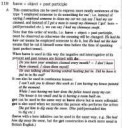Это копия, сохраненная 14 октября 2015 года.
Скачать тред: только с превью, с превью и прикрепленными файлами.
Второй вариант может долго скачиваться. Файлы будут только в живых или недавно утонувших тредах. Подробнее
Если вам полезен архив М.Двача, пожертвуйте на оплату сервера.

Previous thread: >>129870
Learning methods & exam preparation: >>130167
Ask any and all questions about English in this thread.
In this thread and this thread only: free translations by clueless beginners and arguments about grammar between native speakers and B1 level experts.
Don't understand the meaning of a word? Just ask your question here, and we'll be happy to give you a link to the related article on http://oxforddictionaries.com or http://merriam-webster.com
Bad at English grammar? Don't want to bore yourself with books? Now you don't have to! Come up with some sentences of your own and post 'em, you'll have high quality /англо/ corrections before you know it.
Welcome to the English thread!
Президент твой нелегитимный.

That's awesome
It's awesome
This is awesome
Хочу на реальных примерах понять, где и когда нужно юзать эти that's it's this is. Думал что знаю, но по прошлому треду оказывается, что я нихуя не знаю по этому кейсу.
Сколько здесь сижу, не понимаю, нахуя для хохлов отдельный англотред? Давайте ещё сделаем отдельные англотреды для людей с короткими ногтями, для тех, кто ссыт в раковину, для тех, кто родился в четверг. Бред.

Замяткин.
>ТОМ ДЖАНОД, колумнист американского издания Esquire:
>Этот человек был царственно толст. Глядя на него, можно было не сомневаться, что он и ест, и пьет по-королевски. Поэтому я и употребляю монархические эпитеты, описывая его комплекцию. Соответственно статусу он отличался щедростью и жестокостью в равной мере, без всякой оглядки на демократические условности. Особенно щедр он был к знаменитостям. Однажды мне довелось обедать за его столом вместе с одной знаменитой парой. Знаменитостью, собственно, считался муж — довольно старый; супруга же, наоборот, была молода и полагала, что ее успех всецело зависит от того, как часто она будет выставлять напоказ свою великолепную задницу. Представьте себе высоченную платиновую блондинку в обтягивающем платье, которое едва прикрывает гладко выбритую линию бикини. Дама поощряла наш вуайеризм, то и дело грациозно отлучаясь по малой нужде. В продолжение всего обеда она поднималась, натягивая до треска тонкую ткань на победно выставленном крупе, и цокала к дамской комнате. И в продолжение всего обеда царственный толстяк вставал, чтобы приветствовать ее возвращение, и призывал нас проявить такую же галантность. Вначале это казалось милым, потом забавным, но в конце концов неугомонный мочевой пузырь дамы изрядно нас измотал и мы решились спросить хозяина: «Всегда ли мужчина должен встречать входящую женщину стоя?» «Все зависит от женщины, — авторитетно объяснил он. — Такую — всегда».
Есть больше перевода? Tom Junod охренеть какой продуктивный колумнист.
http://www.esquire.com/author/1265/tom-junod/
He was a lordly fat man. Well, he was as fat as a lord, and often as drunk as one, so he was the closest thing to a lordly fat man I’ve ever known. As befitting his status, he was generous and cruel in equal measure, without regard to democratic impulse. He was particularly generous to the celebrities he courted, and one night I had the opportunity to eat dinner with him and a celebrity couple.
The celebrity was old, but his wife–ah, his wife was young enough to believe that her own celebrity depended on how much ass she could display on a given evening. She was six feet tall, platinum at the crown, wore a rubber dress that impinged on the results of her bikini wax, and thought it her duty to indulge our voyeurism by getting up to go tinkle. All dinner long, she would stand up, snap the hem of her dress over her spectacularly deployed rump, and stomp off to the ladies’ room. And all dinner long, the lordly fat man stood up–all the way up, no half measure–to receive her when she returned, bidding us to join him in his gallantry. At first, it was charming, then amusing, then, as milady’s bladder found no rest, merely tiring. Finally, we sought instruction: “Does a man have to stand up every time a woman comes to the table?” we asked our host. “Well, it all depends on the woman,” the lordly fat man answered authoritatively. “With a woman like that–yes, every time.”
https://youtu.be/w58BPcLeGt4?t=42s
Сходить с ума.
Свихнуться.
When I opened the window it was raining.
Какая разница, господа?
Как я понимаю, "though" ближе по смыслу перевод "хот(я)"; "although" - "не смотря (на то, что)"; "however" - "однако".
Но в толковых словарях в разных примерах они употребляются практически в одних и тех же значениях, что совсем запутало меня. В каком контексте всё-таки лучше использовать их?
А я вот не пойму, что значит though, когда его юзают в самом конце, после запятой.
Не, там другое чутка было
Оба означают одно и то же: сначала шел дождь, а ты во время этого дождя открыл окно. Поэтому в первом использование перфекта излишне, если только ты не писатель какой-нибудь и не хотел подчеркнуть, что дождь уже очень долго шел.
Хуй знает как он, а я думал, что при перфекте значит, что дождь шел и типа земля мокрая была, когда он открыл окно, а при паст континиусе он открыл окно и дождь как раз во время открытия херачил.
>>131767
Although и though синонимы. И современные словари относят их к подчинительным союзам. Though в конце предложения может также быть наречием, синонимом however. However при этом может стоять в предложении везде, где можно употребить наречие.
http://dictionary.cambridge.org/grammar/british-grammar/although-or-though
мне кажется я хреново объясняю.
Вообще первое странное, двоякое.
Из-за when оно имеет значение, что от какого-то момента и до открытия окна шел дождь и возможно продолжился. Чтобы получить именно результат, нужно поставить туда before I opened the window it had been raining.
When I opened the window it had (already) rained - вот это ясно показывает, что сначала шел дождь а потом он открыл окно.
Эм ну що ж, ат моеи запамятавки ни яд ни едног човека у усей доски якый б вашесторонскую гонбил-б. Уси отвашенские волокна уместу. Можебыть, этсё вообразженя-твое?


http://vocaroo.com/i/s0gA6NVsQKeJ
"He said that opposing homosexuals only succeeds in making them resolve to indulge in it."
Он сказал, что противостояние гомосексуалистам только укрепляет их решимость заниматься этим.
Как-то так.
Даже не включив ещё пасту и не посмотрев на гифку я уже догадался что это за паста. А вообще, русский акцент слышен.
https://dictionary.cambridge.org/grammar/british-grammar/negation
>Unless к ним относится?
Нет, так же как и if
Мой вариант: What did you wanted to tell me?
или told... не уверен насчет времен.
What did you want to tell me?
So how is this information being gathered under the ice of Antarctica and sent to
Tasmania of use in predicting what is going to happen to the Great Barrier Reef?
Как это перевести?
to be of use
И как эти данные, которые собирают подо льдом Антарктики и отправляют на Тасманию, полезны в прогнозировании того, что случится с Большим Барьерным рифом?
Дякую, друже
"Of such force was the blast that... bla-bla-bla"
Or should I say "Such was the force of the blast that..."?
The boys had been quarreling for half an hour when we arrived home.
I had been dating Angelina for 3 years before we got married.
If it hadn't been raining, we would have gone to the park.
She told me that she had been working as a teacher for over 40 years.
The boys were quarreling for half an hour when we arrived home.
I was dating Angelina for 3 years before we got married.
If it was not raining, we would have gone to the park.
She told me that she was working as a teacher for over 40 years.
I dated Angelina for 3 years before we married. Тут не нужно никаких хитрых времён, потому что у тебя before всё и так выражает.
She worked as a teacher for 40 years. Если ты хочешь просто передать факт, что она работала учителем 40 лет — используй симпл паст.
The first one just describes where something is, while the other is usually used when there's either a difference in location between the speaker and the listener, or between two other things in the sentence.
For example, one of my friends lives in a city to the south of me, and he usually tells me he's going to "come up to Atlanta" if he's coming to the city, and if I go to meet him I say that I'm "heading down to his place".
Up/down is also used when there's an elevation difference. If you live in a house that has two floors your mom can tell you to "come up here for a minute" to call you to the upper floor. We usually use up/down when we talk about traveling to/from mountainous regions.
"over" is more general use. You can tell someone to "come over here" in pretty much all the same contexts as you can tell them to "come here".
In/out is used when you're going or located in or out of something.
"Where are you?
"I'm out here in the backyard"
"Well get back in the house, it's about to rain"

А сам-то как думаешь?
Pirate.
Когда-то нарушение исключительных прав на книгопечатание приравнивалось к пиратству, отсюда и термин.
If I were you I'd never do something - но это в случае, если это действие еще не произошло, а если произошло, то как выразить? If I had been you I would have never do something?
if I were you I wouldn't have done something like this
Почему не It'll? Какая была бы разница?
Выведи пожалуйста правило для меня, ибо у меня голова уже под вечер ничего не соображает. В каком случае было бы It'll?
It's good, it's real good.
А обычно говорят that's good...
I had been looking after him for 2 months when she took off?
Или I looked afther him for 2 months when she took off?
1 вариант.
"That" has a connection to the action of "comming" while "it" is related to the trip itself.
The second one means that at first she took off and then you started looking after him
That what I wanted to write. Thanks.
I was living here for two months before I found out how to turn on the shower.
She had been studying for 45 minutes before I interrupted her.
В первом случае как и моем примере выше, похоже что указываться на то, что после того как он выяснил, как включать душ он прожил там 2 месяца. Или тогда тот, кто пояснял мне за это облажался или у тебя возможно неправильно составлено предложение.
Не
А все дошло
Даже сам сейчас могу
I was eating jam for 10 minutes before I realized that it was not jam
I had been eating jam for 10 minutes before my mom came and booted me
She's been thinking of suicide but now she's changed her mind?

В первом можно на when заменить и смысл не поменяется; я понял в момент поедания джема
А во втором одно действие прерывается другим. я сначала ел а потом мамка пришла и завершила процесс поедания
Вот тут нормально обясняется
she was thinking of suicide but now she has changed her mind
Сотен нефти по 100500 за баррель
The one where you fly and I don't
The kiss holds a million deceits
And a lifetime goes up in smoke
This is my least favorite you
Who floats far above earth and stone
The nights that I twist on the rack
Is the time that I feel most at home
We wandering in the shade
And the rustle of falling leaves
A bird on the edge of a blade
Lost now forever, my love, in a sweet memory
The station rolls away from the train
The blue pulls away from the sky
The whisper of two broken wings
May be they're yours, maybe they're mine
This is my least favorite life
The one where I am out of my mind
The one where you are just out of reach
The one where I stay and you fly
I am wandering in the shade
And the rustle of falling leaves
A bird on the edge of the blade
Lost now forever, my love, in a sweet memory
Помогите пояснить за жирное.
The one where you fly and I don't
The kiss holds a million deceits
And a lifetime goes up in smoke
This is my least favorite you
Who floats far above earth and stone
The nights that I twist on the rack
Is the time that I feel most at home
We wandering in the shade
And the rustle of falling leaves
A bird on the edge of a blade
Lost now forever, my love, in a sweet memory
The station rolls away from the train
The blue pulls away from the sky
The whisper of two broken wings
May be they're yours, maybe they're mine
This is my least favorite life
The one where I am out of my mind
The one where you are just out of reach
The one where I stay and you fly
I am wandering in the shade
And the rustle of falling leaves
A bird on the edge of the blade
Lost now forever, my love, in a sweet memory
Помогите пояснить за жирное.
>Что ты хотел мне сказать ?
What did you want to tell me?
What is it you wanted to tell me?
Etc.
>did you wanted
После do/did/does/will/etc глагол всегда в инфинитиве (или в бейсик форме, как угодно) - want.
>>131942
It привязан к, собственно, отношениям. That тут ни к чему не привязан, если только совсем разрушить диалог и сделать отвечающего характеризовать саму формулировку вопроса. Так что никто не скажет тут that.
Можно было бы добавить к ответу
>It's good.
свой ответ
>That's good.
Тут that был бы привязан ко всему действу/ответу.
И ведь никто даже спасибо за разъяснения не скажет, дурацкий менталитет борды.
Кк перевести "to attend the demand"
Спасибо я скажу. Ты мне хоть более-менее прояснил за эти that's, it's.
Fixing up his house.
Просто фикс - это, как бы сказать, у тебя что-то сломалось, а ты это починил. А фикс ап - ну ты его ремонтируешь как бы. Он же не развалился у тебя, и ты его не собрал заново. Нельзя же "починить" дом.
Děkuji mnohokrát.
I knew that you'd like it не покатит же?
>I knew that you'd like it
This one implies that you now know that she likes the thing you gave her recently
>I had known that you'd have liked it
This one suggests that you knew (yesterday for example) that she would like the thing you was going to give her
Thank you too, bruh.
Т.е. six-sex, bitter-better одинаково произносятся?
some fixes to your remarks:
>I knew that you'd like it
This one suggests that you'd known she'd like the stuff before you gave it to her. That's exactly what that guy wants to say.
>I had known that you'd have liked it
This is just bullshit.
bump
Удовлетворить требования.
Bump
Схуяли? Не могли как в русском зделать?
Мне одному слышится Диджью кол ми, вместо Did you call me? Didju call me!
>>132108
Is this your first time hearing english spoken outside of a classroom or something?
People try to find the quickest way to say things, and changing d into j or t into ch makes the words flow better. It only happens before certain sounds though, so there's probably some pattern to explain it.
Bet you -> Betcha
Did you -> Didja
Would you -> Wouldja?
Picture -> pikchur
could you -> couldja
nature -> nachur
graduate -> grajuate
individual -> indivijual
I've been watching Friends for about a month and still didn't hear betcha, didja and so on.
http://vocaroo.com/i/s0zFY21CresX
Ну-ка, а теперь? (Не хочу кричать на английском, родные в соседней комнате подумают, что я совсем уже поехал)
Бля, говорил по памяти и проебал кусок пасты в начале, ох вэлл.
Я понял. Специально же переспросил как дела и как зовут, на что получил совсем иной ответ. Второй бот мне такой попадается. Наверно потому, что в скайпе стоит Oklahoma City. Когда стоял мой мухосранск, то английские боты не писали пошлости.
С 40-й секунды - кто сможет разобрать все, что говорит этот шотландец, тому, наверное, любой тест на слух. восприятие языка по плечу.
Тэги: second life, майндфак, нонсенс, шотландия, корея, США
P.S. Интересно, сколько этот скоттиш гай стоял и разговаривал сам с собой, пока наш герой не объявился?
Calves - икры что ли?

I have not finished my work but I could (do).
I have not finished my work but I could (have).
Если упороться и добавлять глагол после could в данном случае, какой нужен глагол: do или have? Книга говорит нужно do, но почему я хочу вставить have.
Мне тоже хочется have. Вот пояснение от нейтива:
Ah, that's a fun question. It depends. Americans
would say "I haven't finished my work, but I
could." Brits could say the same, or they might
say, "I haven't finished my work, but I could do."
"Have" would not be correct in this case at all.
But it would be in this: "I hadn't finished my
work, but I could have."
>Calves - икры что ли?
Нет, блять, телята. Нахуй ты это тут спрашиваешь, если во-первых сам уже понял что обозначает, а во-вторых проверить мог бы себя по тому же гугл-транслейту за 5 секунд

Если подлежащим является само вопросительное слово (who), то вспомогательный глагол не нужен. Та же ситуация и с what.
What makes you think so? (not "what does make...")
Who let the dogs out? (not "who did let...")
Красавчик, спасибо.
Timeshare fraud victims targeted by double-dip scam
Fraudsters are offering to secure compensation for timeshare owners desperate to escape a holiday property contract – in return for a further fee.
Интересует, как лучше всего перевести заголовок, особенно словосочетание double-dip в нем.
Олсо, в этом же тексте:
People buy a share in the property for a set number of weeks each year, usually paying a one-off lump sum. In return they get the right to use their annual weeks in the apartment, either for a fixed number of years or, more commonly, "in perpetuity".
one-off lump sum - единоразовая выплата всей суммы или как?
Разве что татуировки на паху твоей еот, долбик.
To my great disappointment, the complex of possible events doesn't have the one where our coordinates in spacetime be close enough for direct verbal interaction?
1. Used to
Конкретный пример и разница в предложениях
а. I used to live alone
b. I am used to living alone
То есть в обоих случаях я жил в прошлом один, а сейчас нет. Но в первом случае - "Я жил один раньше", а во втором "Я жил (до момента говорения) один раньше"
2 . Used to (2)
Это форма для обозначения прошлого, верно? Но вот я нихуя не понял - с глаголом нужно работать? И менять его на глагол прошедшей формы?
3. Have \ Have got
Все это йоба-танцы не стоят свеч? То есть я могу пользоваться и тем и другим, окей?
4. Вот пример смущает. Подредактируйте
I was sad when i sold my car. I HAD HAD it for a very long time
Had been +ing \ was+ing
Я вообще разницу в этих формах слабо понимаю
Заранее спасибо
Это два совершенно разных по смыслу глагола:
а. I used to live alone = я жил один (а теперь не живу)
b. I am used to living alone = я привык жить один
т.е. есть used to - для обозначения повт. действий в прошлом, и есть to be used to - переводится как "привык"
have = have got, да. При этом had got уже не had (т.е. нельзя сказать I had got a car вместо I had a car)
с had had всё в порядке.
"Всегда будь бегущим". Выкупаешь?
>>132243
Wikipedia сообщает:
1, 2. Used to
The verbal expression used to expresses past states or past habitual actions, usually with the implication that they are no longer so. It is followed by the infinitive (that is, the full expression consists of the verb used plus the to-infinitive). (Ответ на твой второй вопрос.) Thus the statement I used to go to college means that the speaker formerly habitually went to college, and normally implies that this is no longer the case.
Used to may be classed among the modals or semimodals on the ground that it is invariant and defective in form like the other modals, and can follow auxiliary-verb syntax: it is possible to form questions like Used he to come here? and negatives like He used not (rarely usedn't) to come here. More common, however, (though not the most formal style) is the syntax that treats used as a past tense of an ordinary verb, and forms questions and negatives using did: Did he use(d) to come here? He didn't use(d) to come here.
Note the difference in pronunciation between the ordinary verb use /juːz/ and its past form used /juːzd/ (as in scissors are used to cut paper), and the verb forms described here: /juːst/ and (when supported by did) /juːs/.
А вот тут про второе предложение: The verbal use of used to should not be confused with the adjectival use of the same expression, meaning "familiar with", as in I am used to this, we must get used to the cold. When the adjectival form is followed by a verb, the gerund is used: I am used to going to college in the mornings. (The pronunciation of the adjectival used in this expression is also /juːst/.)
3. Have got
In colloquial English, particularly British English, the present perfect of the verb get, namely have got or has got, is frequently used in place of the simple present indicative of have (i.e. have or has) when denoting possession, broadly defined. For example:
Formal: I have three brothers; Does he have a car?
Informal: I've got three brothers; Has he got a car?
Note that in American English, the form got is used in this idiom, even though the standard past participle of get is gotten.
The same applies in the expression of present obligation: I've got to go now may be used in place of I have to (must) go now.
In very informal registers, the contracted form of have or has may be omitted altogether: I got three brothers.
4. Все нормально, первое had служебный глагол, второе - смысловой.
5? Это потому, что разница невелика.
>>132243
Wikipedia сообщает:
1, 2. Used to
The verbal expression used to expresses past states or past habitual actions, usually with the implication that they are no longer so. It is followed by the infinitive (that is, the full expression consists of the verb used plus the to-infinitive). (Ответ на твой второй вопрос.) Thus the statement I used to go to college means that the speaker formerly habitually went to college, and normally implies that this is no longer the case.
Used to may be classed among the modals or semimodals on the ground that it is invariant and defective in form like the other modals, and can follow auxiliary-verb syntax: it is possible to form questions like Used he to come here? and negatives like He used not (rarely usedn't) to come here. More common, however, (though not the most formal style) is the syntax that treats used as a past tense of an ordinary verb, and forms questions and negatives using did: Did he use(d) to come here? He didn't use(d) to come here.
Note the difference in pronunciation between the ordinary verb use /juːz/ and its past form used /juːzd/ (as in scissors are used to cut paper), and the verb forms described here: /juːst/ and (when supported by did) /juːs/.
А вот тут про второе предложение: The verbal use of used to should not be confused with the adjectival use of the same expression, meaning "familiar with", as in I am used to this, we must get used to the cold. When the adjectival form is followed by a verb, the gerund is used: I am used to going to college in the mornings. (The pronunciation of the adjectival used in this expression is also /juːst/.)
3. Have got
In colloquial English, particularly British English, the present perfect of the verb get, namely have got or has got, is frequently used in place of the simple present indicative of have (i.e. have or has) when denoting possession, broadly defined. For example:
Formal: I have three brothers; Does he have a car?
Informal: I've got three brothers; Has he got a car?
Note that in American English, the form got is used in this idiom, even though the standard past participle of get is gotten.
The same applies in the expression of present obligation: I've got to go now may be used in place of I have to (must) go now.
In very informal registers, the contracted form of have or has may be omitted altogether: I got three brothers.
4. Все нормально, первое had служебный глагол, второе - смысловой.
5? Это потому, что разница невелика.
Спасибо большое. А что насчет вопроса номер 2?
>I had got a car
то как я понял "Я получил машину", верно?
Да я гуглил же. Просто для того что бы убедиться и удостовериться.
Алсо, ты, анон, правильно подметил что разница небольшая. Однако вот смотри, например
а. He is out of breath. He has been running
b. He was out of breath. He had been running
Где тут, в этом предложении, собака зарыта?
Спасибо заранее за ваши ответы и потраченное время
Нет, I have got a car - у меня есть машина, презент пёрфект
I had got a car - я получил машину, паст пёрфект
Немного не понял
>Have you got any money?
=
>Do you have any money?
Тогда как сказать "ты получил какие-нибудь деньги"?
>первый ответ
Да, в /fl/ с юмором у народу туговато.
Кинул, на самом деле, поржать. Но на удивление много понял из сказанного им. Мне почему-то его немного жалко, такой-то неприкрытый экспрессивный чувак.
>Had got, это тоже самое, что и просто had
Откуда ты это припёр, профессионал по гуглу? Это get в past perfect, кончай хуйню нести
>Got опускается.
Добавляется вообще-то, have got в значении have это разговорное
Нет ты. Этот разговорный оборот употребляется только в present.
I have got a car and I like it.
I have gotten a car yesterday but I have not driven it yet.
>>132266
Презент континиус тут потому, что он бежал до этого некоторое время, и поэтому он out of breath.
При смене времени на прошедшее презент континиус тоже смещается на прошедшее. "он выбивался из дыхания", потому что он бежал ДО того момента некоторое время... Надеюсь, понятно объяснил.
Только там презент перфект континиус. И паст соответственно тоже перфект континиус.
Нуачо? Водопад Харц таков, что раньше там народ часто погибал. Включая вон того парня, который там лазил.
Let's run the application and so we've created a new instance of our class and immediately we are going to do a get on the make property.
Зачем он заюзал тут to be? Позвольте мне остановиться на том, как я встретил мою жену туби и как много она для меня значит. Вот реально, к чему?
Встретил будущую жену.

Atlanta-kun, are you still here?
jellies? Не знаю.
там же то же самое только в IPA
>>132510
Ice Cube - Gangsta rap made me do it
[Chorus 1]
I can say what I want to say ain't nothin to it gangsta rap made me do it
If I call you a nigga ain't nothin to it gangsta rap made me do it
I can act like an animal ain't nothin to it gangsta rap made me do it
If I eat you like a cannibal ain't nothin to it gangsta rap made me do it
Ice Cube - Gangsta Rap Made Me Do It - Текст Песни, перевод http://www.megalyrics.ru/lyric/ice-cube/gangsta-rap-made-me-do-it.htm#ixzz3eOBj5vYq
насколько я понял, что-то вроде "[это не я,] просто gangsta rap made me do it"
nothin' to it
(There ain't) nothin' to it.
Rur. It is easy. Mary: How do you keep your car so shiny? Tom: There ain't nothin' to it. I just wax it once a week. It took Jane just two minutes to sew up the hole in my shirt. "See?" she said. "Nothin' to it!"
> Читаю английский текст и почти не встречаю запятых
> Читаю ру инглиш текст и вижу запятые почти через каждое слово
>Читаю двач и почти не встречаю запятых
>Читаю академический текст и вижу запятые почти через каждое слово
Маленькие девочки мечтают стать женщинами мечты?
Неправильно перевел?
Not even close.
Маленькие девочки, у которых есть мечты, становятся проницательными женщинами.
У человека есть мечта => человек стремится ее достичь => ищет способы достижения => становится дальновидным и проницательным.
This means that if you dream alot being a child, you will sure get to know how to make your dreams come true as you have become adult.
Fine, but poetryspeak.
Totally is your sentence correct as long as its meaning clear and comprehensible.
There are the inhumans hidden among us
The inhumans hide among us
That nigga is being robbed
That nigga is having been robbed
The dinner is being served
The dinner is having been served
В чем разница?
В данный момент/начиная с кого-то момента и в данный момент.
>That nigga is being robbed
>The dinner is being served
Это английский. Нигру грабят, обед/ужин подают.
>That nigga is having been robbed
>The dinner is having been served
Это воу, воу, полегче, повелитель времени. Нигру ограбили, обед/ужин подали.
bump
Хуй знает, что у тебя там за язык программирования, но это что-то вроде "выполним аксессор get свойства make".
as appealing – or inviting - as some of the other ingredients used in the dishes at the banquet, Kate?
Анон, что за хрень? Ни одно из знчений bear не подходит сюда
>это же Оксфордский?
Да. Может, и второе, но мне больше третье нравится, потому что
>isn't as appealing
Ей, видимо, неприятна эта штука, поэтому ей не по нраву про нее говорить.
https://slovari.yandex.ru/bear/перевод/
>>132702
Да, я тоже подумал, что это что-то нечто шутливой формы, мол, "можешь ли ты стерпеть сказать нам", но я не уверен
Спасибо за то, что уделили время
>I can't bear to tell my wife that gunmen killed our son in bed
Здесь серьезный контекст, что-то типа "У меня не хватало духу сказать жене, что вооруженные люди убили нашего сына в постели".
>So, can you bear to tell us why 'ambergris' isn't as appealing
А здесь это более иронично, что-то типа "Можешь ли ты все-таки собраться и объяснить нам, почему амбергрис не такой привлекательный?"
Спасибо, антоша.
Гугли Do-support.
У них есть несовпадающие значения.
http://www.oxforddictionaries.com/definition/english/presume
http://www.oxforddictionaries.com/definition/english/assume
https://www.youtube.com/watch?v=Nms-arYsPX8
А как же
I am having my car cleaned at the moment
My car is having been cleaned at the moment
Поясни про такой момент
I am having my car cleaned at the moment = My car is being cleaned at the moment
Но ведь
My car is being cleaned at the moment - Somebody is cleaning my car at the moment
I am having my car cleaned at the moment - ???
>My car is having been cleaned at the moment
Где ты ЭТО взял? Какое-то бессмысленное нагромождение глаголов.
Так а как пассив будет для I am having my car cleaned at the moment ? Только чтобы have этот не потерять, который показывает что кто-то чистит мою машину
То есть, по-твоему, по предложению My car is being cleaned at the moment нельзя понять, что машину кто-то чистит?
>>132755
>который показывает что кто-то чистит мою машин
Схуяли он это показывает-то? Это сказуемое, этот глагол показывает чем занято подлежащее, в данном высказывании ты. Проведи-ка синтаксический разбор своего предложения. Кто конкретно чистит твою машину не сообщается.
My car is being cleaned at the moment. - Тут тоже ясно, что кто-то чистит/моет твою машину, и тоже неважно кто.
Explain what? The second sentence is still wrong. Other posters have already pointed out how to properly make the sentence passive.

Эта штука показывает что кто-то что-то делает для меня. А being cleaned может быть и биинг клинед мной самим и кем-то. С having же ясно что не я чищу.
>wat
"I am having fun" -> "Fun is being had by me"
he's trying to do that (form a passive voice sentence) with "I'm having my car cleaned at the moment"
Бля
I am having my cat cleaned by my mom.
I - subject
my cat - object
my mom - agent
am having cleaned - verb
Переделываем в пассив
My cat is having been cleaned by my mom
my cat - object
my mom - agent
is having been cleaned - verb но с been потому что пассив (например I have cleaned smth - smth has been cleaned by me)
>synergy did improved is wrong
Yeah, I copied that guy's example without putting any thought into it. 'Synergy did improve' is what I really meant.
>>132761
Твой ебанутый вариант просто неправильный. Ты не сможешь перенести эту конструкцию в пассив. Have относится к I, cleaned относится к car. Ты можешь, однако, сохранить само сообщение, что кто-то это делает за тебя. My car is being had cleaned at the moment by some car-cleaners/someone/whatever.
I'm cleaning my cat. — My cat is being cleaned.
I'm having my cat cleaned. — My cat is being had cleaned.
Давай, докажи мне, что эта логика неправильная, в отличие от твоей. Хотя они обе говно.
Согласен
> is being had cleaned
>am having cleaned - verb
>my cat cleaned - object
Что за содомия? Я милонову блядь пожалуюсь, устроили тут.
Да. Ума не приложу, как оно туда пробралось, на самом деле.
>wat
The most important part of the sentence that comprises the word "having" has been erroneously omitted by the Sirs during their considerate pointing out operation.
Ну а хуле он
твой вариант даже хуже :^)
>>132766
Ok ladies, let's set the record straight. You cannot say "is having been verbed" or "is had been verbed." It's completely wrong. It's also worth nothing that English STRONGLY prefers active voice. If they know who is doing the action, 9 times out of 10 a native speaker will prefer active voice:
>Bob is washing my car
instead of
>My car is being washed by Bob.
If the person or group doing the action isn't important, but you want to show that it isn't you doing it, then you can say it like this:
>I'm having my car washed
>I'm getting my car washed
>My car is being washed
>твой вариант даже хуже :^)
Поясни за оба тогда:
>They lost that important having part while pointing out
>The most important part of the sentence that comprises the word "having" has been erroneously omitted by the Sirs during their considerate pointing out operation.
Ну на самом деле.
The first one makes no sense, the second still makes no sense AND tries to sound smart through vebosity, and that's even worse.
Could you please explain thoroughly?
Because I am sure that I can clearly see the meaning of either of them
Или траливалинг такой? Ибо я ошибки не вижу
They lost an object while verbing.
They lost that important having part while pointing out
>траливалинг
Нет, у тебя действительно очень хуёвые предложения, он не расписал подробно потому что там легче новые предложения составить чем все ошибки разъяснить
>>132797
>Т.е. здесь тоже ошибка?
pointing out требует наличие объекта:
Many people got angry while pointing out your stupidity
жирным - объект
прочитай про транзитивные/нетранзитивные глаголы там например
"that important `having' part" это очень косноязычный object, поэтому он тебя не понял
lel. Just because you can kinda guess at what they were trying to say doesn't make it a good sentence. Both are awfully written.
>They lost that important having part while pointing out
Take out the last three words and it sorta makes sense, but "that important having part" doesn't really mean anything. I still have no idea what he meant by "while pointing out." "Pointing out" needs an object like this guy said >>132801
A better way to write it would be something like:
>The sentences loses some of its meaning when you leave out "having"
>The most important part of the sentence that comprises the word "having" has been erroneously omitted by the Sirs during their considerate pointing out operation.
I already said that writing verbosely just makes you look like an idiot. It sounds pretentious as fuck, especially when it's done like this. Particularly the last bit:
>erroneously omitted by the Sirs during their considerate pointing out operation
>by the Sirs
"Sir" is almost never used in the plural. I say almost because I'm sure you can google a few examples, but in 22 years of speaking English in a part of the US where saying "yes sir" and "yes ma'am" is standard, I have never ever heard it pluralized.
>pointing out operation
A completely bullshit phrase that was thought up to make the sentence longer. This kind of writing is beaten out of kids in middle school because it's a good way to say absolutely nothing in a lot of words.
>>132797
There's no mistake there.
>The sentences loses some of its meaning when you leave out "having"
Лол. Он не это пытался сказать, насколько я понимаю.
нет, он жаловался на отстутствие значения что это сделано кем-то другим, а не человеком произносящим фразу
так что он правильно понял
Bump
I would like to explain the way my mind works, may I?
There are two parts I split the sentence into.
One is the "having" part which contains the word "having" and the other is the part preceding it.
My car is | having been cleaned at the moment.
Then those SIRS (gentlemen) come and take out that "having part" making completely different in its meaning sentence.
That is why I say:
They lost that important "having part" while pointing out.
Where "while pointing out" means "during the pointing out process that they performed."
And we eventually have: They omitted the part containing the word "having" during their pointing out process.
Regarding "pointing out."
Here is an example from the Oxford English Dictionary:
>Most of the people around here are very poor, I pointed out.
I really do not understand why can't I say something like this based on the example:
"Because of his pointing out, we realized that most of the people around here are very poor."
А ко второму "verbosely written" предложению просто доебался, как я вижу. Ибо Sirs можно использовать как множественное число, если верить гуглу.
"pointing out operation" по аналогии "military operation."
military operation - an activity in which military actions are involved.
pointing out operation - an activity in which "pointing out" actions are involved.
I would like to explain the way my mind works, may I?
There are two parts I split the sentence into.
One is the "having" part which contains the word "having" and the other is the part preceding it.
My car is | having been cleaned at the moment.
Then those SIRS (gentlemen) come and take out that "having part" making completely different in its meaning sentence.
That is why I say:
They lost that important "having part" while pointing out.
Where "while pointing out" means "during the pointing out process that they performed."
And we eventually have: They omitted the part containing the word "having" during their pointing out process.
Regarding "pointing out."
Here is an example from the Oxford English Dictionary:
>Most of the people around here are very poor, I pointed out.
I really do not understand why can't I say something like this based on the example:
"Because of his pointing out, we realized that most of the people around here are very poor."
А ко второму "verbosely written" предложению просто доебался, как я вижу. Ибо Sirs можно использовать как множественное число, если верить гуглу.
"pointing out operation" по аналогии "military operation."
military operation - an activity in which military actions are involved.
pointing out operation - an activity in which "pointing out" actions are involved.
Нет.
Бля, может, уже просто час ночи, и я хреново соображаю, но ты мне сейчас мозг взорвал этим объяснением. Я бы так хуй догадался, что за они и какую такую часть с having они пропустили.
Are you autistic?
>Then those SIRS (gentlemen) come and take out that "having part" making completely different in its meaning sentence.
Nice Russlish, and again, sirs is not a replacement for gentlemen, except maybe on shitty parts of reddit. Do you really want to write like those faggots?
>I really do not understand why can't I say something like this
Pointing out needs an object. The example
>Most of the people around here are very poor, I pointed out.
is similar to dialog, I forget what it's called (reported speech maybe?). Either way when you rearrange that sentence you see that "pointed out" has a direct object here:
>I pointed out that most of the people around here are very poor
>А ко второму "verbosely written" предложению просто доебался, как я вижу. Ибо Sirs можно использовать как множественное число, если верить гуглу.
Go ahead and teach yourself English through google searches and ignore the native speaker telling you you're constructing sentences and using words poorly. See how far it gets you.
>"pointing out operation" по аналогии "military operation."
The analogy wasn't lost on me, I was just pointing out that it's a stupid way to phrase it. Literally "5th grader trying to use as many words to describe something as possible to fill up his oh so huge 500 word requirement" tier.

А так нормально? :
Then those gentlemen come and take that "having part" out making a completely different in its meaning sentence.
И это еще:
They lost that important "having part" while making suggestions.
It could be you if you was this lyrical
It could be her if she was this spiritual
Поясните, почему was? Ведь к you должно же быть were.
Почему эта штука тогда не говорит, что транзитив нельзя использовать таким образом?
Это нигро-инглиш
Подразумевается же что на примере одного рассматриваем все подобные глаголы
Потому что она здесь ни при чем. Это ты не понимаешь, что такое транзитивные глаголы и как их использовать.
Блядь. Как " 'pointing out' needs an object" у тебя превратилось в "транзитив нельзя использовать таким образом"?
>Jack saw a skunk while pointing ? out ?
Пойнтин-ауту нужен объект, либо в одном либо в другом месте, не может он без объекта, не суждено ему быть нетранзитивным, понимаешь?
>Jack saw a skunk while pointing out the lack of animals in the forest.
Вот теперь пойнтин-аут счастлив – у него появился объект, настоящая вторая половинка, теперь он может жить спокойно, блядь. И при этом структура предложения прямо как из примера, т.е. можно использовать даже транзитивные-онли глаголы в таких фразах, только нужно чтобы у них не отвалился их объект.
>Then those gentlemen come and take that "having part" out making a completely different in its meaning sentence.
Better, but still not great. Too much russlish
>making a completely different in its meaning sentence.
making a sentence with a completely different meaning.
>They lost that important "having part" while making suggestions.
Still bad but it makes more sense.
>>132828
Dialect. Blacks and some southerners say "you was". Combined with ya'll it makes "to be" in the past tense make more sense in my opinion:
I was
You was
He was
We were
ya'll were
they were
Different pronoun for singular and plural "you", was for singular, were for plural, 10/10 should be part of standard english.
Спасибо.
А так вообще нельзя говорить
different in its smth
?
Вон нашел
However, each painting is completely different in its own right, with its own ideas and type of abstraction.
The problem was the word order, not that phrase. "different in its x" is perfectly fine.
Но ведь "is a completely different in its meaning" это такое большой predicate
Почему он не может стоять перед словом sentence?
Например такое:
This is a blue car, and that is a completely different in its color car.
Или это не predicate? Уточни.

I was running a maraphon yesterday. And while running, I broke my leg.
Должно же быть какое-то правило, в каком случае можно опустить объект. Это же Английский.
I go by feel not by rules man, I'm not going to be able to point to some shitty textbook and tell you exactly why it's wrong. It's obviously a predicate, and it even "makes sense," but it's not the proper way to word it. I guess the best way I can show you is to compare your sentence and the example:
>However, each painting is completely different in its own right, with its own ideas and type of abstraction.
>is completely different in its own right
is just describing painting
This is a blue car, and that is a completely different in its color car.
>a completely different in its color
this is an adjective phrase describing car, it doesn't describe the subject "that". That's what makes it sound bad to me, I think.
>>132841
Some verbs are both transitive and intransitive.
>Matt is sad because his favorite bike broke.
>Matt is sad because he broke his favorite bike.
You can't just say "Matt's sad because he broke" (well, you can, but then it would be black slang and it would mean that Matt has no money, but that's not using broke as a verb) because broke being used like that has to have an object.

>this is an adjective phrase describing car, it doesn't describe the subject "that".
Все, теперь понятно.
Субъект-то that, а не car.
Thank you.

Everyone needs to put their coat on.
Так же тоже можно
Смотря насколько ты политкорректен и какой generic pronoun тебе по нраву.
Можно.
I think singular they is technically not the right way to do it, but it's the way a ton of people (including me) say things when it needs to be generic.
Поясните про артикли.
A cashier - тут A потому что это один из кассиров в магазине
the change - тут the потому что это определенная сумма которую он мне должен дать.
change - потому что тут сдача в общем смысле (но масс наун значит зироу ардикл)
a counter - потому что прилавок в общем смысле как и сдача
Или как бы вы расставили?
Did you come up with that example yourself? "Do not leave change on the counter" sounds better. Your logic for all the articles except the last one is spot on.
нужно the counter по двум причинам:
1) это логичнее, т.к. когда перед тобой КОНКРЕТНЫЙ прилавок, то сложно переключить мышление на некий абстрактный.
2) прислуга ни в коем случае не должна давать посетителю советы и patronize.
the slang part isn't "broke" meaning out of money, but the "he broke" phrase. To be is often left out in a lot of contexts in African American english
>>132857
Not really. We borrow anything and everything these days. Even Russian words.
There are a few attempts to write english without foreign words though, but they're mostly just fun projects by enthusiasts.
http://anglish.wikia.com/wiki/Foroned_Ricks_of_Markland
That proves nothing.
Anybody can buy a fake driver license of any country in the подземный переход.
What would prove it to you then, Ivan? It's 2AM so I can't go around taking pictures of my timestamped dick near Atlanta landmarks. The lighting wouldn't be good.
>unironically being southern
Other than that I have no idea why you're bothering with these faggots tbh. I go here sometimes but end up crying myself to sleep from what 2ch has become

>Other than that I have no idea why you're bothering with these faggots tbh. I go here sometimes but end up crying myself to sleep from what 2ch has become
this doesn't prove you're actually American. Provide photographic evidence of circumsized penis.

We can tell that themselves by your writing style.
You do not actually need to do that since you are sure the only person here who indeed speaks English unlike those Russian roosters (it is quite natural here to call people like that roosters) who go on ko-ko-ko-ing all the time without any particular reason except insulting everybody and showing disrespect to everyone.
The other thing is that every time you are here, you help people correct their mistakes and that is what totally makes you stand out from the DVACH crowd.
So basically look at you. Look at you and how mean you are. You're the embodiment of what's wrong with the 2ch community. I'm aware of the fact that I'm being condescending right now but it's just so fucking dire. This board is full of argumentative morons who'll violate every rule of having an intelligent debate in favor of shitposting. Some posts are disturbingly hateful.
As for why I haven't just quit 2ch altogether... well I owe this place part of my adolescence (on 2ch.ru) so I feel like I want to visit here sometimes. Going here used to feel good.
Here's the truth about subjunctive in English: it's dying. A lot of people today would say "If I was the president" instead of "If I were the president." And that usage of it in the past was probably the most common one in everyday speech, so I'm sure the other uses of it are also on the way out. It sucks that we're losing a part of the language, but it happens.
That said, in formal writing people will still look for it, and the stuff that I described in >>132837 has nothing to do with subjunctive. That's how my dialect uses "to be" in the past tense. Proper subjunctive in the past would still be:
I were
You were
He were
We were
Yall/you were
They were
Here's the truth about the subjunctive mood in English: apart from "if I were" there isn't much to remember. English subjunctive merely distinguish from the indicative, you can't compare it to the Spanish one, for example.
you could've added "thou wert" to the list, if you wanted nouns to have a variety. Your "y'all" looks ridiculously, tbh.
Pronouns of course, I apologise
>looks ridiculously
kek
>you could've added "thou wert" to the list, if you wanted nouns to have a variety
"Yall" is an example of a plural form of "you" used by actual English speakers today. Other dialect examples are yous, yinz, you uns, and there's probably more. The most common dialect neutral way to say it is "you guys." Why the fuck would I include some archaic bullshit that no one knows and hasn't used in hundreds of years?
I wanted to call you, but I didn't have your number.
Почему неверен первый вариант?
Тут вроде кто-то говорил, что после Who нельзя формировать вопрос через do, does. Who works in a bank?
Вроде его нет этого множественного варианта в этом варианте. Ты можешь стоять в кругу ниггеров и сказать Who wants to get some beer/high? И желающих может быть много.
Why took up? What's the diffence beetwee took and took up to?
Потому что отрицательная форма past simple образуется через do-support. Have здесь смысловой глагол, а не вспомогательный.
"Thou" and its forms is considered as a part of Modern English. Despite not being used by vast majority of speakers it is still used today:
1. In poetry
2. When talking to God (inb4 lol)
3. In some books to distinguish it from plural "you" (sometimes in grammar books comparing to other European languages)
even in novels, (look "for whom the bell tolls", the book is from 20th century)
4. In some dialects of England, you would be surprised, anon, but it's true.
"Y'all" is not considered standard English. It'Is strange to see from In a grammar example
I bet you one of those who use "gonna, wanna, sorta, gotta" when writing. That's sad!
If you're fluent in English and use it informally, like in texting or talking to friends, or here on the Internet, it's ok.
If you're Russian Vanya, who can't say a phrase in English, without messing up grammar, nah, it's not gonna work, m8, you would look stupid.
What if am I Ukrainian Petro? For example, Petro Porosenko uses those gonna, wanna. And? His English is pretty fluent.
Нахуя они свой язык еще дальше упрощают? Всю жизнь знал как wasch the dishes, они все глаголы поменяют на do, этим все кончится?
Ебать ты немец.
Yeah, I heard him speak and was surprised by his English. What do you want me to say? He probably says "gonna" because it's shorter and more convenient sometimes, but I highly doubt Petro P uses "gonna" in written texts in formal situations.
Also can't imagine him using "ain't". I've already explained my point, man.
I just wanted to say that it's okay to use words like gonna, wanna, finna, ain't. But some people think that it's not ok to use these words cuz you look like an idiot in the hood. But it's just normal and so on.
They arranged staying with their cousin in Atlanta.
They arranged to stay with their cousin in Atlanta?
>Why?
Same reason you don't write "двачую мнение автора" or "мой батя затирал мне" in your essay.
>What he fuck?
Yo mama.
В 1 случае staying будет существительным(mb), а во 2 глагол.
Тип, ты ж так вот не пишешь в ессей своем, ну, разве что, чтобы вкатиться в нигра юниверсиди, то ок может будет
I haven’t the slightest idea. Both seem to be ok
Ты считаешь, что фразовые глаголы что-то плохое или что? Это обычные слова, которые ничего общего с твоей писаниной не имеют.
Which one gets you better score?
I am compelled to cease your frequent infuriating behavior.
I've got to make you lay off your flossing.
The fist one looks like it was written by britin lord, the second one looks like just a sentense from just a man from the street.
it depends on the required tone of the essay.
>>133236
I think this has something to do with possessive have rarely being contracted. Brits might do it but it sounds weird to me.
>>133251
You can use "do" there, it just changes the meaning and needs to be a followup question in a particular context. You're right about the basic question just being "who works in a bank?"
>Bob, do you work in a bank?
>Nope
>Well who here does work in a bank?
>>133252
It doesn't matter if the answer is plural. You could reword your question if you somehow need to imply that you're looking for a more general answer
>What kind of people work at a convenience store?
>Indians, mostly :^)
>>133278
>"Thou" and its forms is considered as a part of Modern English
In certain set phrases like "holier than thou" and un-modernized religious texts
>when talking to god
This might depend on the church, but during the short time I attended church as a kid I never ever heard the preacher once refer to god using thou. I also haven't ever heard any of my religious family members use it when praying before meals.
>look "for whom the bell tolls", the book is from 20th century
Bitch please, we read and analyzed the shit out of that in highschool. He used archaic english and weird phrases that sounded like direct translations from spanish to convey the fact that the characters in the book were speaking Spanish (which has the tu/usted distinction for 2nd person). He was criticized for this. People called the language of the book "medieval." You can't use this as an example of modern usage of thou.
I can't speak for it being used in britfag dialects as I've never really done any reading about them, you might be right there.
>>133308
In chapter 5
On the home page
>>133331
You'll pretty much always be right with "per," but "a" will sound better in most informal contexts. For example, in a contract detailing salary you'll find something like "$10 per hour," but if you ask someone how much they make the response will most likely be "$10 an hour"
it depends on the required tone of the essay.
>>133236
I think this has something to do with possessive have rarely being contracted. Brits might do it but it sounds weird to me.
>>133251
You can use "do" there, it just changes the meaning and needs to be a followup question in a particular context. You're right about the basic question just being "who works in a bank?"
>Bob, do you work in a bank?
>Nope
>Well who here does work in a bank?
>>133252
It doesn't matter if the answer is plural. You could reword your question if you somehow need to imply that you're looking for a more general answer
>What kind of people work at a convenience store?
>Indians, mostly :^)
>>133278
>"Thou" and its forms is considered as a part of Modern English
In certain set phrases like "holier than thou" and un-modernized religious texts
>when talking to god
This might depend on the church, but during the short time I attended church as a kid I never ever heard the preacher once refer to god using thou. I also haven't ever heard any of my religious family members use it when praying before meals.
>look "for whom the bell tolls", the book is from 20th century
Bitch please, we read and analyzed the shit out of that in highschool. He used archaic english and weird phrases that sounded like direct translations from spanish to convey the fact that the characters in the book were speaking Spanish (which has the tu/usted distinction for 2nd person). He was criticized for this. People called the language of the book "medieval." You can't use this as an example of modern usage of thou.
I can't speak for it being used in britfag dialects as I've never really done any reading about them, you might be right there.
>>133308
In chapter 5
On the home page
>>133331
You'll pretty much always be right with "per," but "a" will sound better in most informal contexts. For example, in a contract detailing salary you'll find something like "$10 per hour," but if you ask someone how much they make the response will most likely be "$10 an hour"
понять то можно, но составить это когда пиздишь, сук пиздц

У нас так вообще половину глаголов можно заменить на "ебануть", "хуйнуть", "хуярить", "ебашить".
Я думаю, это не совсем то.
Да возьми delay, это и не postpone и не put off
и про put off этот
Вот например вообще вроде и то, и то — фразовые глаголы, а окраска разная
Now put off your panties babe
Please take off your coat, sir.
Я имел в виду "задротничать в игры".
>put off your panties
It'd be take off. Put off has a few meanings but none of them come anywhere close to what you're trying to say.
Your panties put me off, babe.
>5 лет в английском
>узнаёшь, что drunken используется перед существительными, а drunk просто так
>т.е. разница как между my/mine

— Хуясе! Охуели?! Нахуя дохуя хуйни нахуярили?! Расхуяривайте нахуй!
— Нихуя! Хули? Захуярено нихуево, нахуя расхуяривать? Похуярили!
Классика
Да ворлдвайд уже давно только дранк употребляют
Stop cramming and go out with her already, man
Дерьмово. Так что никто не знает как перевести?
eh, still sounds wrong to me. It's either the internet being wrong (gasp!) or a britishism/older use of the phrase.

в американском английском произношение части совпадает чтоль?
Who the hell are you and why do you speak proper English here on 2ch.hk?
Добро пожаловать.
я американец :^)
>>133392
There is no such thing as an "american english" vowel set. There are tons of accents and dialects with their own vowel inventories. I don't even know what they consider to be "standard American," so I couldn't tell you what accent they're basing the american vowels off of.
don't really keep up with basketball
Ну и эти естественно /ɛ/ /e/
Nope. I'm so 'merican I don't even really know where my family's from. We've been here since at least before the civil war, probably earlier. Most likely I'm some scots-irish mix because most of the people in the region I come from are.
Pretty sure I found out about 2ch back when people from /b/ used to migrate to 4chan's /int/ and shitpost whenever Abu forgot to pay the rent
My bitch was dreaming an about big black
Dick, shit and i don't like that trick x4
Shit man, im goin down
Small dick is a trouble now
Im motherfucking white and i hate damn niggers
i wanna push my finger on a motherfucking triggers
Shit man, im goin raw
Hating bitches cuz im small
But, fuck, i don't give a fuck
I'm playing games and have some buck
Listening some music and sometimes dance
Screaming "fuck you fagget lance"
Who is lance? Fuck you i don't know
But i hating niggers all time long
My bitch was dreaming an about big black
Dick, shit and i like that trick x4
it's terrible. Don't try to write rap or any sort of creative work in a language you don't know.
I wasn't even talking about the content. The quality of the english in it is shit. If that's what you're going for though, then you nailed it.
http://vocaroo.com/i/s1heleKEOaru
http://vocaroo.com/i/s1heleKEOaru
http://vocaroo.com/i/s1heleKEOaru
WINNER
Let's Pretend This Never Happened: A Mostly True Memoir by Jenny Lawson
For fans of Tina Fey and David Sedaris—Internet star Jenny Lawson, aka The Bloggess, makes her literary debut.
Jenny Lawson realized that the most mortifying moments of our lives—the ones we’d like to pretend never happened—are in fact the ones that define us. In the #1 New York Times bestseller, Let’s Pretend This Never Happened, Lawson takes readers on a hilarious journey recalling her bizarre upbringing in rural Texas, her devastatingly awkward high school years, and her relationship with her long-suffering husband, Victor. Chapters include: “Stanley the Magical, Talking Squirrel”; “A Series of Angry Post-It Notes to My Husband”; “My Vagina Is Fine. Thanks for Asking”; “And Then I Snuck a Dead Cuban Alligator on an Airplane.” Pictures with captions (no one would believe these things without proof) accompany the text.
>kak mudaki
эт запросто, дышал в микрофон между репликами
http://vocaroo.com/i/s133n96lhmrF
ничего не смыслю в акцентах + до сих пор не научился четко говорить, поскольку особо и не приходится...
He has an obvious accent m8.
that said what is with the obsession with not sounding russian when you speak english? It sounds stupid as shit when I hear non-brits speak with a british accent or non americans speak with an american one. Everyone has an accent, as long as you can communicate with proper grammar no one will care.
Because phonetics is the most important one of the three: pronetics, grammar, vocabulary. You would know this if you learned English as a second language. No one is going to listen to you if your pronunciation is incomprehensible. Moreover, any English teacher would tell you that you don't need to master the grammar nor memorize all the words that there are in the language, but you have to get along with the phonetics perfectly. If you are not quite sure about grammar, you can use simple language constructions. If your vocabulary is poor, you employ simple words, but when in comes to phonetics, you have no choice.
Eh, not really. It's highly unlikely that any of you will ever properly learn the pronunciation of even one of English's many native accents, just like it's unlikely that I'll ever speak Russian with no accent. It takes immersion in an environment where you speak and are spoken to in the language daily to begin to really eliminate an accent. Phonetics are important to a certain point, and that is until you are understandable by any other speaker of the language. It doesn't have to be perfect, but you have to be able to at least approximate most of the sounds in such a way that there's very little confusion when you speak. Good grammar is extremely important as without it it's hard to convey meaning beyond the most basic of things, and good vocabulary is needed not so much for using it, but for understanding native speakers who are unlikely to limit their vocabulary to fit your knowledge. You can have a passive vocabulary of words you understand but never come up with while speaking yourself that is many times larger than the vocabulary you actually use.
>>133466
>What do you got?
What do you have?
>Did you ever had? (this one is technically not correct english)
Did you ever have?
>She don't care
She doesn't care (slang/dialect, also technically wrong)
The two you posted >>133467 here I have no idea how to make any clearer than they already are.
да поебать русский не русский, все равно ж экзотичен. Мне на слух по записи кажется что я какой-то непонятный европеец, что в общем так и есть
Вряд ли я выучусь говорить как стопроцентный америкос ибо меня со всех сторон окружают странные европейские акценты, а телевидение я смотрю то американское, то английское, то черт знает какое.
Разговариваю на смеси сленгов, в общем фулл ретард мод.
>>133454
that's what I think too. some accents sound ghey af though, so not everything is worth keeping, and more often than not people will lean toward American English, like the one you hear in the news.
It's a play on the phrase "Will it blend?" that came from an infomercial about a blender that was really powerful and could blend fuckin anything. It became a sort of joke. They're probably trying to make hot pockets out of unusual fillings
я так понял судя по картинке хот покет это когда обжигаются горячей начинкой, соответственно вопрос ставится на тему этой возможности.
that's hardly popular culture, I could probably go outside and walk around asking people about it and less than half would probably remember it.
>само слово переводится как "выпуск", "издательство"
Слишком мало у тебя значений для английского слова, используй другой словарь.
>спорный вопрос, предмет спора, разногласие

Прокси юзай. Без прокси не работает.
"It's awesome." - Только про объект, т.е. можно так сказать про цветочек, но нельзя про то, как кто-то на него накакал.
"This is awesome", "that is awesome" - довольно похоже, и именно про то, как кто-то, например, накакал на тот замечательный цветочек. Причём "that's awesome" обычно употребляется после некоторого (возможно, долгого) рассказа про какание, а "this is awesome" можно сказать даже до.
Алсо, я пару раз слышал как сами англичане говорят "this is awesome" про объект, но то, вероятно было ошибкой.
Thy adroitness ist unerring, m'lord. I revere thee.
How hast thou attained so high a deftness in the parlance?
Да, точно. Каким лучше пользоваться?
Могу
Мне всегда нравились эти полезные советы новичкам.
Почему бы нам не продолжить?
Это будет why wouldn't we continue или why won't we continue? И как точно переводится и первое и второе? Буду признателен

Вот какой-то американец пишет:
In every civilized country 17 is long since legal.
Что-то не могу присобачить эту форму больше никуда
My car is long since red.
Хуйня же или можно так?
марриам вебстер такие примеры дает
promises long since forgotten
has long since been a devoted friend
но что-то это не то совсем
won't
Можно ебануть bare infinitive - "Why not continue?"
>>133619
long since = давно
"В каждой цивилизованной стране 17 лет уже давно совершеннолетний возраст"
>My car is long since red
"Моя машина уже давно красная"?
>что-то это не то совсем
То, то.
>promises long since forgotten - давно забытые обещания
>has long since been a devoted friend - уже давно верный друг
Это вроде?
mischievous
mischievously

Господа, перепишите это без использования to credit smth to smth
credits на owes замени
>them bones
>them crooked vultures
Что это за хуйня, анон?
>почему ты не хочешь есть?
>why do you not want to eat? also why don't you want to eat?
right? wrong?
Yup.
If you ever wonder if you're beautiful, you're not.
whether не предлагать.
просто убери "If you" в начале
Эти штуки можно разделять, а можно и не разделять. Но если разделяешь, тогда not эмфазируется
у baby на конце i, me -- i: (и это разные звуки, дело не в длительности) ни разу не встречал чтоб me произносили с i
Вот!
Нормальная фраза, у нас так говорят. Ну разве что слегка хуевая.
Учи французский же. Зачем тебе инглиш?
Для чего ты учишь язык? "Чтобы знать" - хуёвый ответ.
>>133706
Тут рассказывается история.
Не понимаю почему настоящее простое.
Было бы логичней что:
Карла выбрала...
Она разговаривала...
Present Simple используется, когда мы:
-Для указания на факты, знания или повторяющиеся действия.
-Рассказать о том, что вы делаете постоянно, каждый день (неделю и т.д.), то есть о тех действиях, которые стали для вас привычными.
-Рассказать о явлениях природы, неопровержимых истинах, фактах.
-Когда вы говорите о каком-то действии "в общем", не подразумевая какой-либо период времени. Неважно, когда происходит действие относительно момента речи.
Здесь какой случай?
чет проиграл
ты в обычном общении тоже все время в прошедшем времени общаешься чтоль? там описывается что происходит на картинке
по задумке автора это может быть описано как в прошедшем таки и в настоящем и будущем времени
очевидно конкретно в твоем примере он описывает происходящее на картинке как прямо сейчас
Present simple также используется для комментариев по мере происхождения действия (например, футбольный комментатор скажет passes the ball, хотя пас уже прошёл, это придаёт динамичности), при рассказе коротких историй, анекдотов (a horse walks into a bar...) Это как бы даёт эффект "присутствия"
The boys trowing stones into the pond laughed loudly.
trowing - кидавшие или кидающие?
Мальчики бросающие(вшие) смеялись(тся) ?
И почему?
Залог действительный, должно передаваться одновременность действия сказуемого и собственно причастия.
т.е у меня опорное слово, от котоорго я беру время стоит в ing , а инг это и есть причастие, рекурсия.
Как разобраться?
ещё раз, там причастие как сказуемое и определительный причастный оборот, как определить время.
Так это в причастном определительном обороте.
Т.е по твоему получается время переносится с придаточного предложения на сказуемое, а по определению наоборот.
В чем фишка то?
Can you see the girl dancing with your brother?
Вот тут все понятно, - видишь, танцующую(танцует)
А в том непонятно.
Только не принимайте меня за того фентези-мудака. Никакого отношения к нему не имею.
>Т.е по твоему получается время переносится с придаточного предложения на сказуемое, а по определению наоборот.
Што? Я тебе говорю - время определяется по сказуемому. The boys laughed loudly - past simple - парни громко смеялись
The boys (throwing stones into the pond) laughed loudly - past simple - парни, кидавшие камни в пруд, громко смеялись
Ты спросил как определить время, я тебе ответил, я ни хуя не понимаю что ты там куда переносишь и что у тебя там получается.
To cleanse the undead? To bring peace to the undead?
бывает, теорию когда плохо знаешь, а много читал и использовал язык. Хотя есть ещё вариант, что ты ничего не знаешь сам и хуёво поправляешь
Если ты лет пять дрочил английский по книгам/фильмам, и нейтивы не угорают с тебя, когда ты пытаешься с ними поговорить, то да.
>Если ты лет пять дрочил английский по книгам/фильмам
Шесть-семь скорее, только по книгам мало, сначала по любительским переводам манги (у школоты/студентоты тоже словарный запас не ахти, так что мне на начальных уровнях было куда проще), комиксам и всяким статьям/фикшену в интернетах.
Ну и год за бугром жил.
В первом тоже.
fired - тебя в любом случае кто-то уволил, это же не "I quit"
разница как между "Я уволен", как состоянием, и "Меня уволили"
Не важен, но это не значит, что получившаяся фраза, хоть и понятная, не будет звучат как говно.
Вот как раз чтобы опускать, нужен правильный порядок слов.
Никто так не говорил. Говорили, что порядок слов в русском свободный
Нельзя слова из разных кляуз перемешивать - хуйня получится.

Какой уровень, advanced? Где скачал?
вместо запятой перед There точка должна быть
Хули ты хуй?
Ни в чём.
Твердо и четко поясните за quite a bit: много или мало?
Спасибо
Разница в том что ты можешь с объектом использовать просто help: Help me do smth
но
Help me out интранзитив
А вот ты похоже не прав. Или я не прав. Видел нечто подобное. Hey. It's so hot in here. It'll be good to open the window. Can you help me out?
Что в переводческом резюме на английском означают translation direction и translation domain?
Тот анон прав, потому что в твоём примере hrlp me out остаётся составным непереходным глаголом, очевидно.
Направление перевода, специализация перевода (ну типа там медицинский, или юридический, или металлургия).
Спасибо. А чем это отличается от направления перевода? Это ведь две разные графы.
Направление перевода, это направление. С русского на английский, с испанского на тагалог, вот это вот всё.
Благодарю!
help позволяет принимать глагол в основной форме (help us kill this guy)
help out не принимает глаголы вообще
Вот и вся разница по-моему.
me - direct object что для help в "help me" что для help out в "help me out", то есть они оба, очевидно, транзитивны
"Сообразив, что мысли завели его куда-то не туда, он поднял глаза в голубое небо."
Интересует конкретно пассаж про мылси, завёдшие куда-то не туда.
He realized that his thoughts had led him somewhere wrong, and looked up to the blue sky.
Спасибо.
Noticing that his mind led his thoughts astray, he raised his eyes to the blue sky.
Про тему, рему, фокус, интонацию ты, видать, не слышал. Свободный порядок слов у него, охуеть. Русский — T3 язык с порядком слов SVOD.
смотря какое и смотря где.
For your friends are my friends,
And my friends are your friends.
The more we get together,
The happier we'll be.
for = так как, поскольку
Хули ты кекаешь не впопад. Из скрина следует что религиозные люди не нормальны и не рациональны. Они - религиозны, епта.
Если на английским накосячил или просто на русском:
Аноны, посоветуйте годную конфигурацию для Анки. Юзаю SSE 4000 Essential English Words by Paul Nation.
Спасибо

Хм. Наверное надо добавить, что я имею в виду настройку интервалов повторения какого-либо слова.
со временем
Это копия, сохраненная 14 октября 2015 года.
Скачать тред: только с превью, с превью и прикрепленными файлами.
Второй вариант может долго скачиваться. Файлы будут только в живых или недавно утонувших тредах. Подробнее
Если вам полезен архив М.Двача, пожертвуйте на оплату сервера.

















